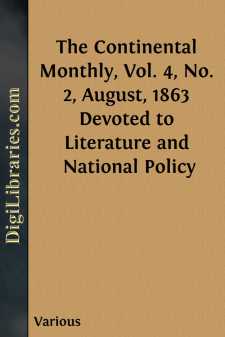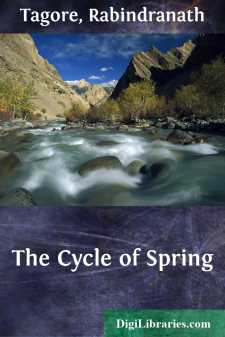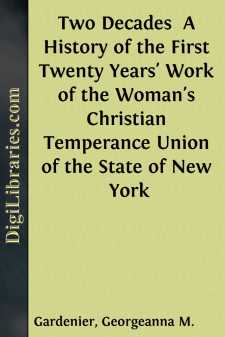Categories
- Antiques & Collectibles 13
- Architecture 36
- Art 48
- Bibles 22
- Biography & Autobiography 813
- Body, Mind & Spirit 142
- Business & Economics 28
- Children's Books 15
- Children's Fiction 12
- Computers 4
- Cooking 94
- Crafts & Hobbies 4
- Drama 346
- Education 46
- Family & Relationships 57
- Fiction 11828
- Games 19
- Gardening 17
- Health & Fitness 34
- History 1377
- House & Home 1
- Humor 147
- Juvenile Fiction 1873
- Juvenile Nonfiction 202
- Language Arts & Disciplines 88
- Law 16
- Literary Collections 686
- Literary Criticism 179
- Mathematics 13
- Medical 41
- Music 40
- Nature 179
- Non-Classifiable 1768
- Performing Arts 7
- Periodicals 1453
- Philosophy 64
- Photography 2
- Poetry 896
- Political Science 203
- Psychology 42
- Reference 154
- Religion 513
- Science 126
- Self-Help 84
- Social Science 81
- Sports & Recreation 34
- Study Aids 3
- Technology & Engineering 59
- Transportation 23
- Travel 463
- True Crime 29
Sort by:
DESERTED "Sailormen ain't wot you might call dandyfied as a rule," said the night- watchman, who had just had a passage of arms with a lighterman and been advised to let somebody else wash him and make a good job of it; "they've got too much sense. They leave dressing up and making eyesores of theirselves to men wot 'ave never smelt salt water; men wot drift up and down the...
more...
Depth of Soil for Fruit. Would four feet of good loose soil be enough for lemons? Four feet of good soil, providing the underlying strata are not charged with alkali, would give you a good growth of lemon trees if moisture was regularly present in about the right quantity, neither too much nor too little, and the temperature conditions were favorable to the success of this tree, which will not stand as...
more...
by:
Various
OUR FUTURE. In these exciting times, when our country is enduring the throes of political convulsion, and every time-honored institution, every well-regulated law of society seems tottering from the broad foundation of the past, how few are there who ask themselves the question, What is to be our future? For the past two years we have lived in a state of extraordinary and unnatural excitement, beside...
more...
by:
Laurence Hutton
He was not a very good boy, or a very bad boy, or a very bright boy, or an unusual boy in any way. He was just a boy; and very often he forgets that he is not a boy now. Whatever there may be about The Boy that is commendable he owes to his father and to his mother; and he feels that he should not be held responsible for that. His mother was the most generous and the most unselfish of human beings. She...
more...
by:
Ethel Beatty
PREFACE A book containing accounts of the work continually and unceasingly being carried on by the gallant officers and men of the Royal Navy should prove of considerable interest to all, and, at the present time, especially to the American reader. I am glad that a New York journalist has had the opportunity of witnessing a part of the titanic task of our courageous sea-fighters, and of personally...
more...
by:
Various
OUR BALLYBUN LOTTERY. [À propos of Premium Bonds it has been recalled that in his evidence, given some years ago before a Select Committee, the then Under-Secretary for Ireland stated that in that distressful country "lotteries are very much used for religious purposes by people of all denominations," and that "it would be flying in the face of public opinion, especially of the great...
more...
Characters of the Prelude King, Vizier, General (Bijoy Varma) Chinese Ambassador, Pundit (Sruti-bhushan) Poet (Kabi-shekhar), Guards, Courtiers, Herald The stage is on two levels: the higher, at the back, for the Song-preludes alone, concealed by a purple curtain; the lower only being discovered when the drop goes up. Diagonally across the extreme left of the lower stage, is arranged the king's...
more...
by:
Conny Keyber
Madam, It will be naturally expected, that when I write the Life of Shamela, I should dedicate it to some young Lady, whose Wit and Beauty might be the proper Subject of a Comparison with the Heroine of my Piece. This, those, who see I have done it in prefixing your Name to my Work, will much more confirmedly expect me to do; and, indeed, your Character would enable me to run some Length into a...
more...
PREFACE. istories are strange things: they uncover so many hidden events, and bring back so many lost memories. A history that traces the beginnings of a reform movement, that weaves the shuttle of memory in and out of the web of the past and presents a perfect woof of fact and incident, is a treasury of knowledge that will not fail to delight and instruct. But the compilation of such a history is no...
more...
by:
E. W. Haslehust
THE CITY Just as the five cities of Colchester, Lincoln, York, Gloucester, and St. Albans, stand on the sites and in some fragmentary measure bear the names of five Roman municipalities, so Isca Dumnoniorum, now Exeter, appears to have been a cantonal capital developed out of one of the great market centres of the Celtic tribes, and as such it was the most westerly of the larger Romano-British towns....
more...











